Edikang ikong soup is not your everyday vegetable soup, it is The quintessential vegetable soup. It is a luscious, mouth watering, finger licking, lip smacking soup, indigenous to the people of Cross-river and Akwa-ibom states of south-south Nigeria, who are believed to be blessed with exceptional culinary skills.
My mother did part of her career training in Calabar, she not only brought home her certificate, but also an expertise in this pleasure-giving soup. There was always a buzz around the house when we saw the ginormous piles of ugu and water-leaf brought home from the market, we knew she was about to bless us with Edikang Ikong soup. Ours was a typical large Nigerian household which included extended family members and the attendant live-in helps. My Father loved my mother’s Edikang ikong no be small, I will say it was their ‘love’ soup.
The vegetables are cooked beyond being crisp, they are cooked to release their juices which blends with the meat and fish stock. This delicious juice is cooked down to concentrate and cling to the vegetables. Edikang Ikong is one soup you put your heart into.
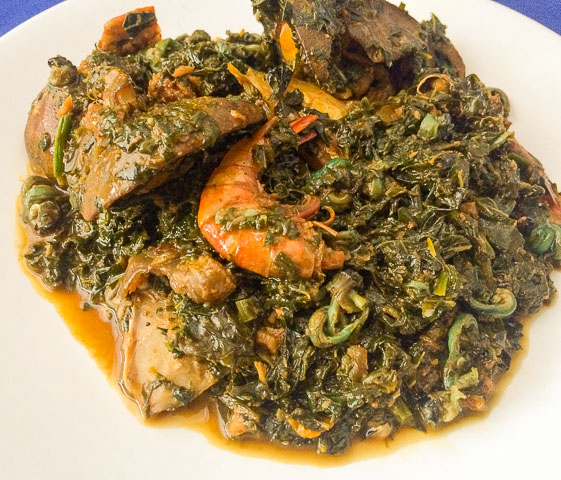
The difference in the quantity of soup you produce compared to the quantity of vegetables used is usually small. You can load it up with snails, periwinkle, stock fish, mgbe (oysters), beef enthrals (orishirishi), kpomo (canda, cowskin), etc, or keep it simple. Your Edikang Ikong soup will stand out once you have the correct ratio of ugu and water-leaf, also if you time the addition of crayfish and palm oil well. The soup does not require much liquid.
The proportion of ugu and water-leaf is flexible so the quantities given here is just a guide. The age of the ugu etc can affect the texture of the leaves so always do the ‘slime test’ which i have explained further down to check your vegetable ratio.
To reheat the soup, add a little oil and place over low heat to steam. Water is not used unless the soup is exceptionally dry. I prefer rewarming it on the stove top rather than the microwave oven.
To prepare Edikang Ikong:
Beef stock fish Dry fish mixed meat* snail periwinkle Dry prawns (oporo) 600g water leaf 350g ugu, shredded finely 2 1/2 cups stock + water 1/2 cup ground crayfish 4 scotch bonnet (fresh pepper) 3 seasoning cubes salt 1 cup palm oil
To prepare Edikang ikong soup
*Kpomo (canda), intestine, shaki, etc
- Wash beef and stock fish, place in a pot with some water, season with salt and boil till soft.
- Soak dry fish in hot water for 2 minutes, drain and rinse well in cold water. Add to the boiling meat.
- Wash mixed meat thoroughly and boil with some salt till soft.
- Clean snails and boil seasoned with salt till a fork barely passes through.
- Wash periwinkle and set aside. (I also remove the tiny disc on the head, don’t know the name but can’t stand it).
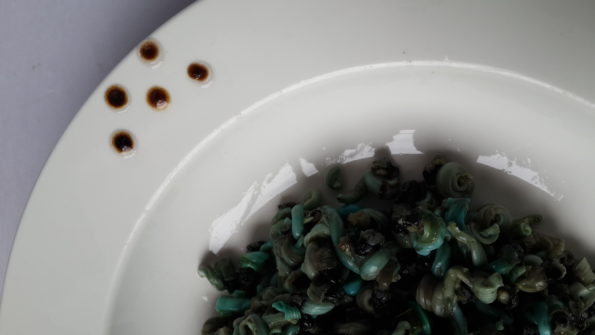
- Rinse the dry prawns, remove and grind the heads, set aside. (If not using, slightly increase the quantity of crayfish).
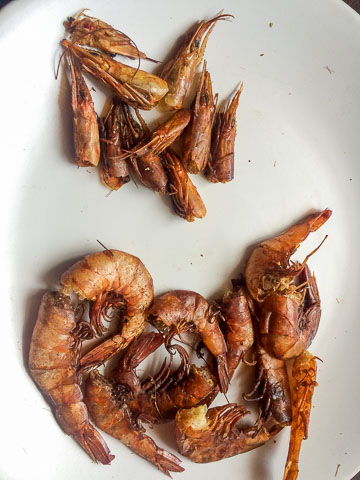
- Meanwhile, pick, wash and shred water-leaf, set aside. Pick, wash and finely shred Ugu leaf, set aside.
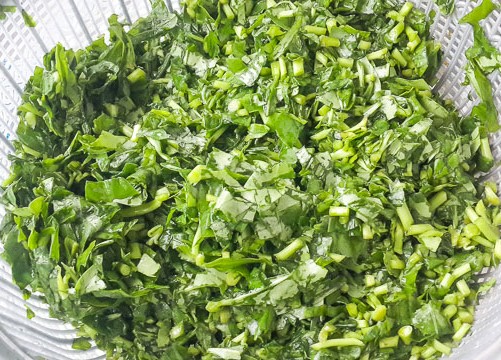
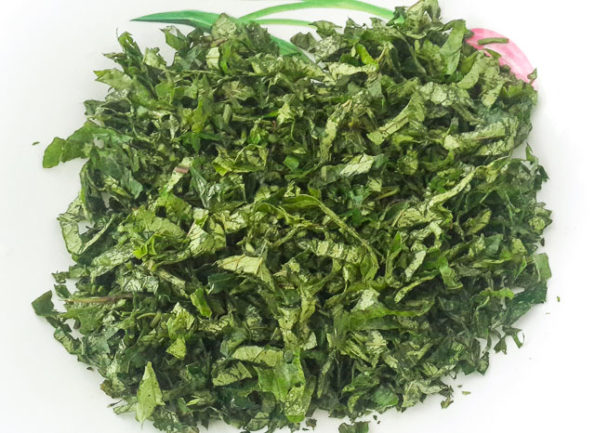
In a clean pot, put 2 cups of stock and add shredded water-leaf.
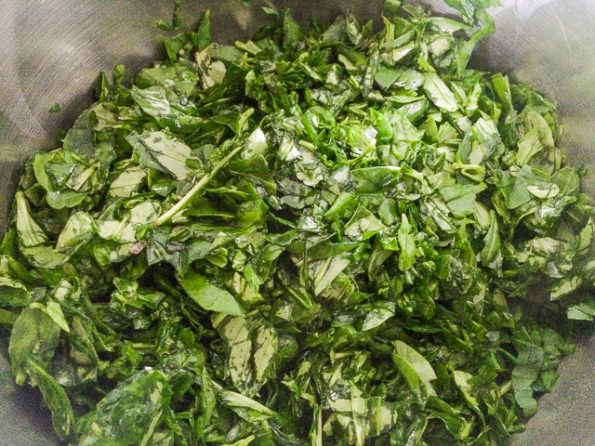
Cook over medium heat till water-leaf has wilted and released its water. The colour will become a dull brownish green.
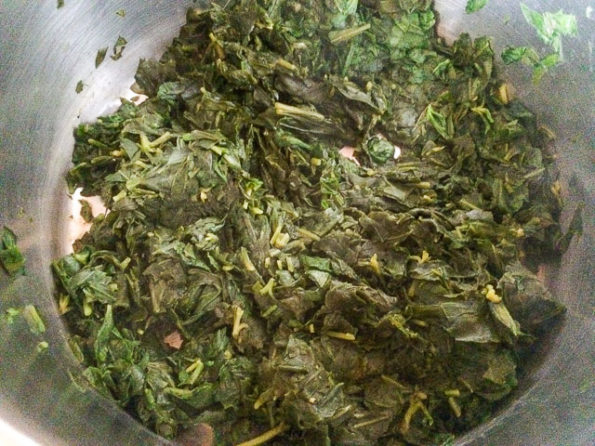
Add most of the ugu and mix very well. **Take about half a teaspoon full of the mixed vegetables between your fingers and rub, if it’s slimy, add more ugu. If it feels dry and rough, the ugu is too much but if it is neither slimy or rough, you have the right balance. Takes some practice. It should also look well blended.
Add cooked meat, stock-fish, snail, dry prawns, ground dry prawn head, pepper, seasoning cubes, and 1/2 cup stock.
Stir very well, taste and add salt.
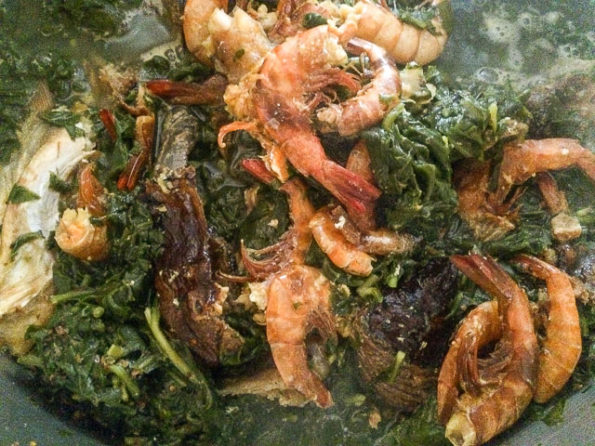
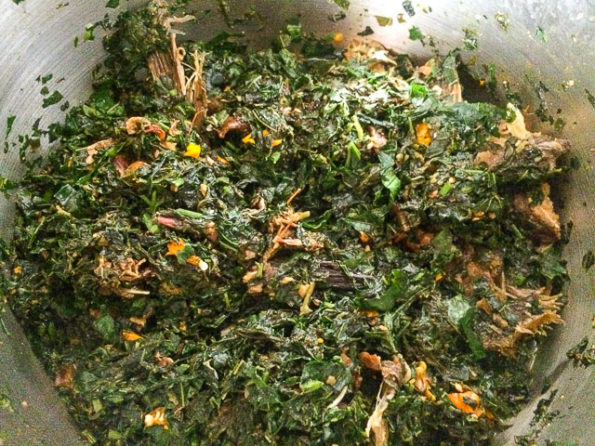
Cover and cook soup for 10 minutes.
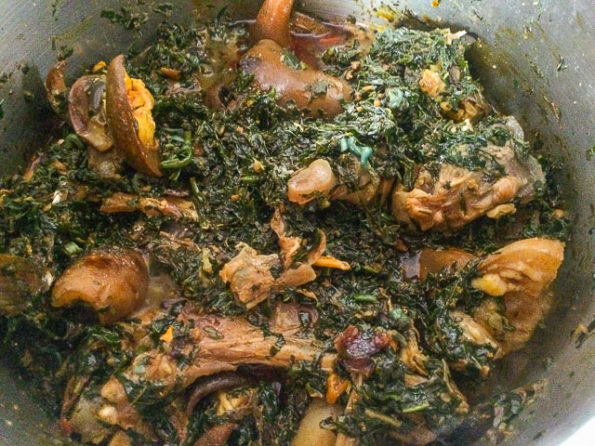
Add crayfish, cover and cook for a further 5 minutes till there is very little liquid remaining. Add palm oil and cook for 3-5 minutes.
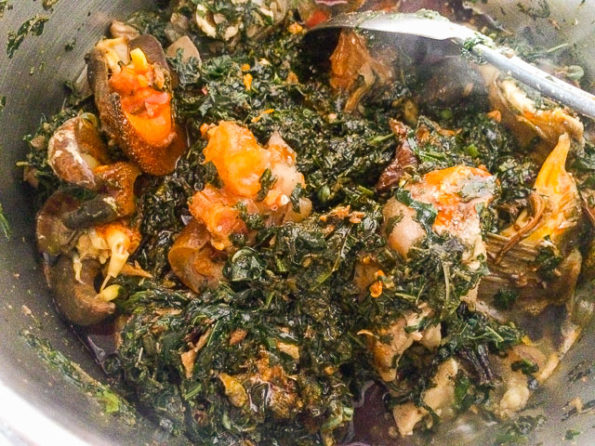
Taste adjust seasoning and take off the heat.
There you have it, Edikang ikong soup.
Do you have any comments, questions or suggestions, please leave a comment below.
Share this recipe using the share buttons. Subscribe to the blog for instant notifications of new recipes.
Follow on Instagram: @thepretendchefofficial, Twitter: @thepretendchef Facebook: https://web.facebook.com/thepretendchef/ and Pinterest: https://www.pinterest.com/thepretendchef/
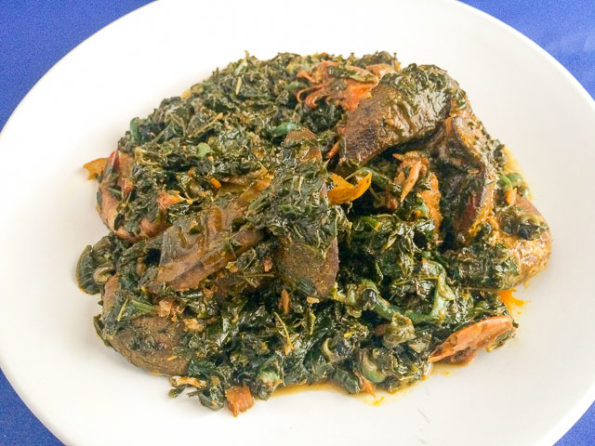
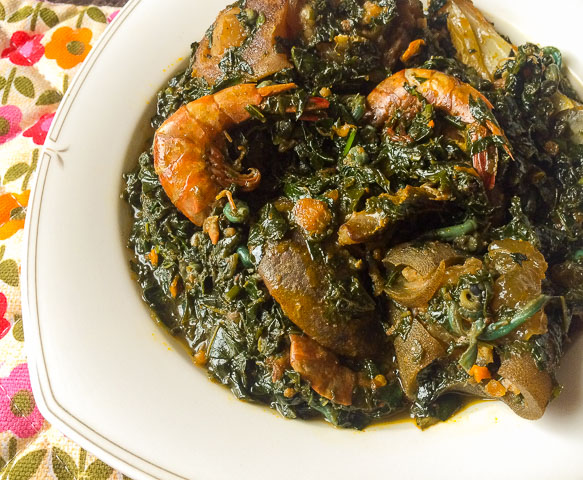
 I am Ganiru, a wife, a mother, a food blogger, a chef, an author and an accountant. I love to cook and write about food, especially Nigerian and afro-centric food...
I am Ganiru, a wife, a mother, a food blogger, a chef, an author and an accountant. I love to cook and write about food, especially Nigerian and afro-centric food...
Really learning. Thanks a lot for this.
Thanks
Pingback: Ugu soup, Ofe ugu - The Pretend Chef
Pingback: Afang Soup - The Pretend Chef
Pingback: Efo Riro (vegetable soup) - The Pretend Chef
Woow what a wonderful meal